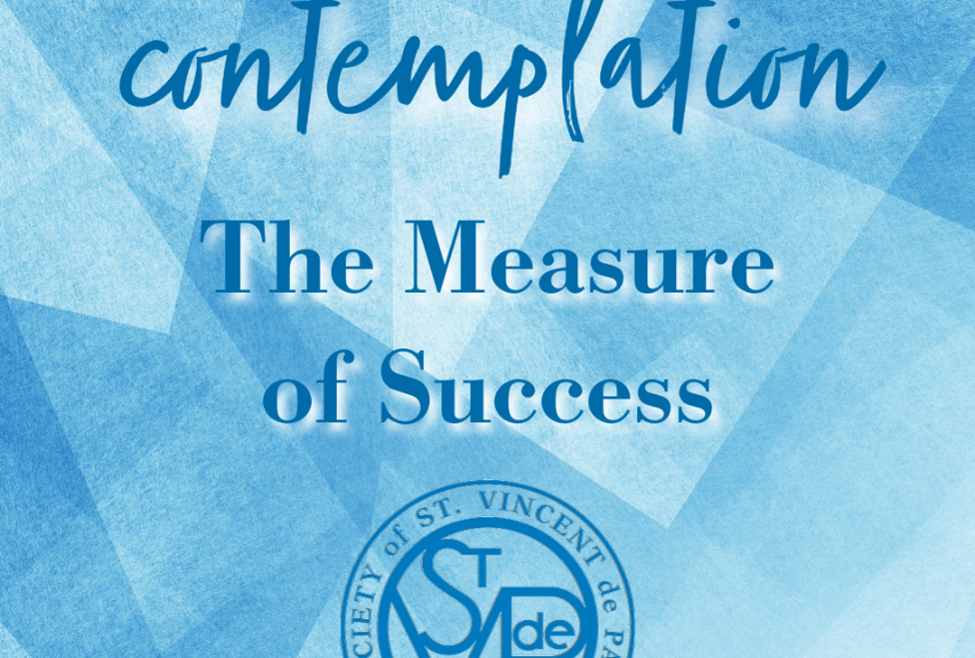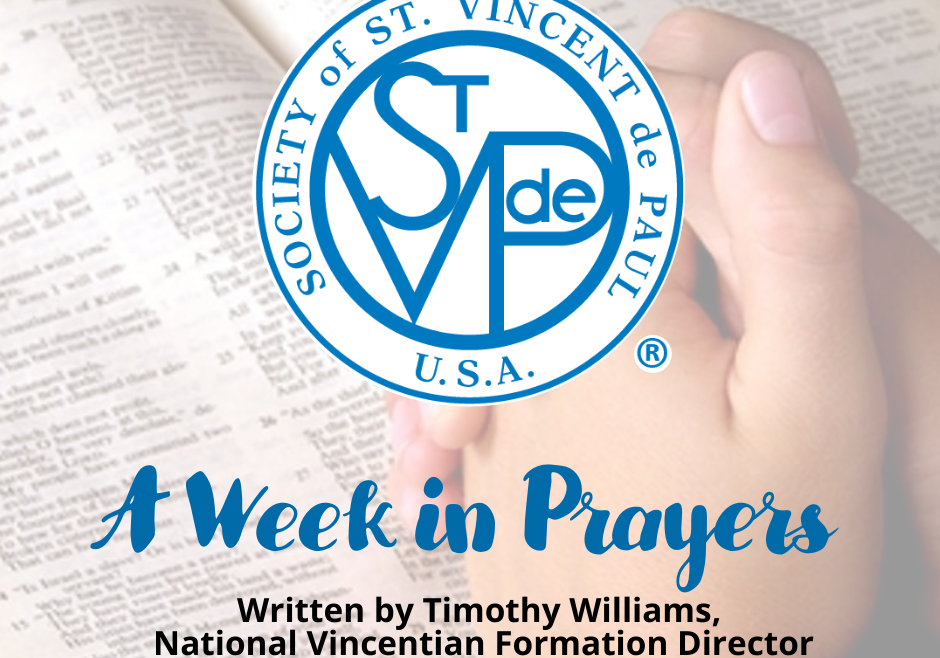In Blessed Frédéric’s famous essay “Help Which Honors” he points out that when we focus on mere material assistance when there is no reciprocity, when we “give the poor man nothing but bread, or clothes, or a bundle of straw — what, in fact, there is no likelihood of his ever giving [us] in return” it can be humiliating. This is so not only because the neighbors cannot literally repay us for the assistance, but because without having earned it through their own work, they have lost some of their dignity.
Because we are accountable to civil authorities and to donors for the material resources that we give, we regularly (and rightly) report the totals. As a result, it can become easy to allow ourselves to begin measuring our works by people, dollars, loaves of bread, bills paid – the things that are easy to tally up. We can point to each of these things, patting ourselves on the back for all that we’ve done.
But nowhere in the Rule or the Gospels are we called to measure our success this way.
Instead, we are called to offer “any form of help that alleviates suffering or deprivation and promotes human dignity and personal integrity in all their dimensions.” [Rule, Part I, 1.3] To alleviate is not to eliminate. Like Veronica, we offer some relief, some temporary alleviation of suffering.
Certainly, we are called to identify “unjust structures” and to work towards eliminating the root causes of poverty, but we must remember always that justice cannot replace charity. [Rule, Part I, 7.1] After all, the seeking after justice, while it is to the benefit of all society, is not going to put food on a particular hungry neighbor’s table tonight. We are called, as Frédéric said, to “make charity accomplish what justice alone cannot”. [Letter 136, to Lallier, 1836]
Because suffering “can shake our faith and become a temptation against it” [CCC, 164], our service to the neighbor must above all demonstrate the care of a loving God who does not abandon us in our suffering. Ours is an association not only of works, but of faith. We serve the neighbor in charity – the love of God – and walk with him in friendship.
We cannot always know – in fact, we may rarely know – whether we have drawn another towards God, and so we can’t report that accomplishment. But the conversion of hearts is never really our accomplishment, it is God’s. The more we focus on the material, the more we risk robbing the neighbor’s dignity, rather than restoring it.
Instead, we are called to selflessly offer our time, our talents, our possessions, and ourselves; to gently offer our friendship and our prayers; to humbly demonstrate our faith through our works; and with zeal to “do all the good we can, and trust to God for the rest.” [Baunard, 81] Even if it doesn’t seem measurable.
Contemplate
How do I measure success?



